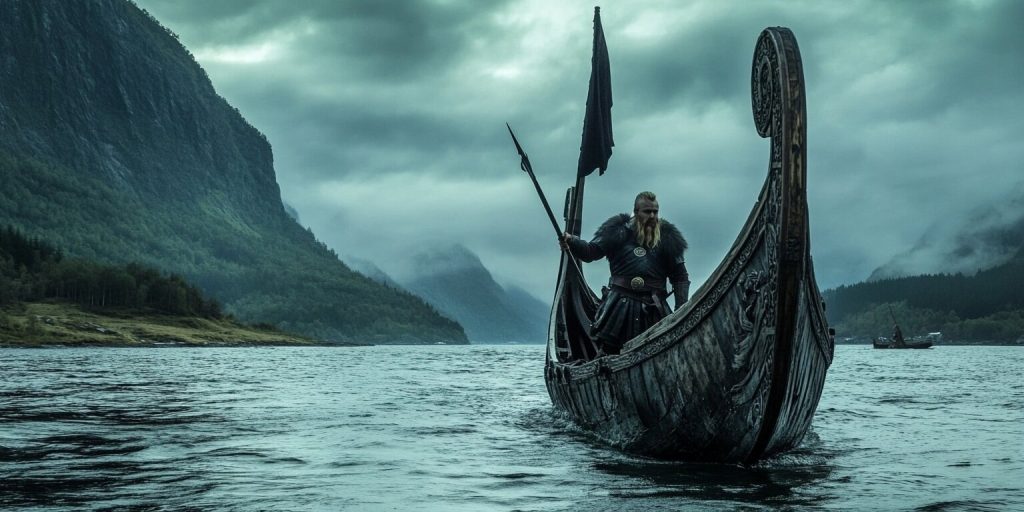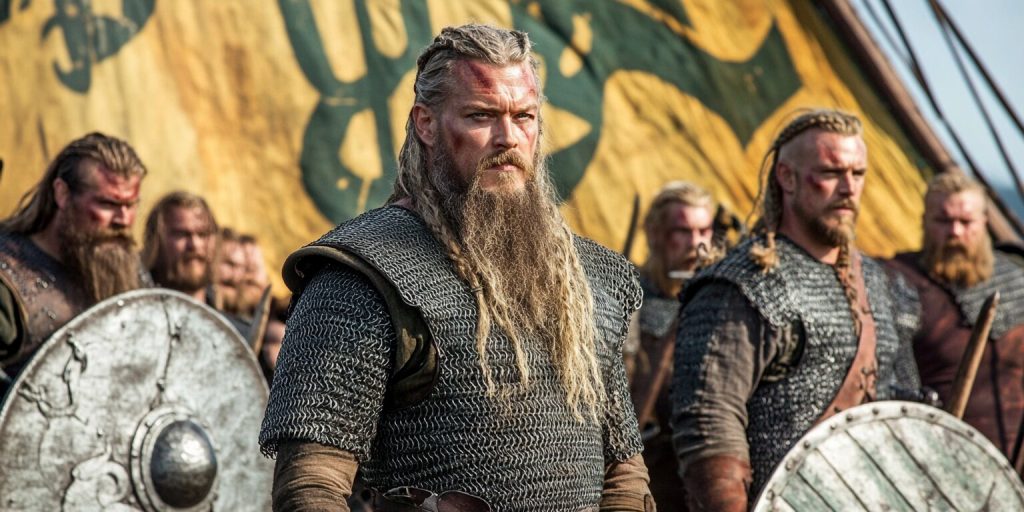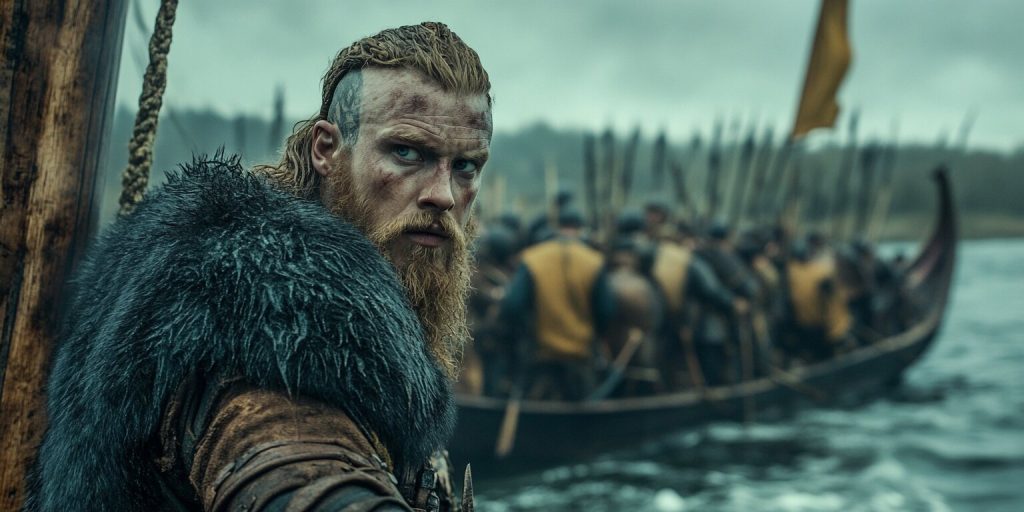Viking Heritage, Vikings
How Did Vikings Get Their Name?
The name “Viking” has always sparked interest among historians and those who love Norse culture. Let’s look into how these sea warriors got their famous name. We’ll explore early references and clear up common myths regarding Vikings’ name. This journey into the name’s origins shows us its deep historical and cultural meaning.
So, where did the name Viking come from? Keep reading our article to find out.
The Etymology of the Word Viking
Looking into the word “viking,” we see its roots in Old Norse and its historical background. The term “viking” comes from Old Norse. It shows us the sea-faring culture of the vikings.
Old Norse Viking Name Origin
The Old Norse word for “viking” is “víkingr.” It means someone who goes on sea trips, often raids. We find this term in ancient writings and poems. It tells us about the Vikings’ life at sea, a central theme in the history of the Vikings.
Relation to the Word “Vik”
The word “viking” is also linked to “vík,” an Old Norse word for bay or inlet. This shows how the Vikings were deeply connected to the sea and to the broader history of the Vikings. They used these waters for raids and to explore, reaching places like the Baltic and beyond. The world’s history is closely tied to their sea-faring ways and the history of the Vikings.
Historical Context of the Viking Age
The Viking Age was a time when Scandinavian warriors became famous for their sea skills and bold spirit. They came from what is now Norway, Sweden, and Denmark. These adventurers set out on daring journeys that changed Europe forever.

The Rise of Scandinavian Seafaring Warriors
The first Vikings grew from a mix of social changes and new ship technology. They wanted wealth, new lands, and trade chances. Their advanced ships let them sail far and wide, making them leaders in the North Atlantic.
Viking Raids and Settlements
The Viking Age is known for its scary raids across Europe. These started in the late 8th century and hit monasteries and towns to take their riches. But raids turned into settling in places like the British Isles, Ireland, and France. These settlements brought Norse culture to new lands, mixing with local ways.
Understanding “Viking” in Old Norse Culture
In old Norse culture, the word “Viking” meant more than just a group of people. It was about sea-faring adventures, not just a name for a certain group of Scandinavians. People who went on Viking expeditions could have been warriors, traders, or explorers.
Viking warriors were key in shaping the culture and society of the Viking era. The term “viking” wasn’t a daily label for them. Yet, they were crucial to their community.
These Norsemen saw themselves as explorers, traders, and conquerors. These activities shaped their identity in old Norse culture. The status of those who went on Viking expeditions, like Erik the Red, could change their reputation at home.
Learning about the term “viking” helps us see how Scandinavian culture saw their roles. It shows their diverse efforts in the Viking era, especially during the 10th century. Being a Viking meant being a big part of a culture that valued bravery, adventure, and discovery.
Evolution of the Term Over the Centuries
The term “Viking” has changed a lot since the Viking Age. It shows how the *viking legacy* affects modern society. This change helps us understand the term better today.
Changes from the 9th to the 11th Century
In the 9th to the 11th century, “Viking” meant seafaring warriors from Scandinavia. As the Viking Age ended, the term changed. It used to mean raiders and explorers, but then it covered more of Norse culture and society.
By the end of the Viking Age, people stopped using the term much. Old stories like the Anglo-Saxon Chronicle showed both the violent and the good sides of Vikings, helping shape the popular conceptions of the Vikings we know today.
Modern-Day Interpretations
Nowadays, “Viking” is seen as romantic and adventurous in books, movies, and TV. Shows like the “Vikings” series and novels have made modern-day Vikings seem tough and adventurous.
These modern-day Vikings mix history with fiction. The Viking legacy is still big, making the history of the Vikings and myth blend together. People are still drawn to Viking culture, focusing on their bravery but also missing their trade and governance skills, such as those exhibited by Erik the Red.
This shows how the Vikings’ impact is still felt today. They are a big part of our culture, showing how deep they are in our history.
The Role of Viking Society and Culture
Viking society was full of life, beliefs, and traditions. At its heart were the Viking warriors. They lived by honor and fought with courage. The Icelandic sagas tell us about their history and legends, giving us a peek into their culture.

Viking Warriors and Their Codes
Viking warriors were known for their bravery and skill at sea. They lived by strict codes of honor and valor. These codes shaped the lives and morals of 10th-century Vikings. The viking helmet symbolizes their bravery and warrior spirit.
The Influence of Icelandic Sagas
The Icelandic sagas have greatly influenced our understanding of Viking culture. They tell stories of heroism and everyday life. These stories give us a look into their social structure and values, including those of Viking women.
They turn Viking history into myths that live on today. The sagas keep the Viking spirit alive through the ages.
Conclusion
In conclusion, the term “Viking” carries with it a rich tapestry of historical and cultural significance that extends far beyond its origins in Old Norse. From its roots in the adventurous spirit of Scandinavian seafarers to its evolution over the centuries, “Viking” has come to symbolize not just a group of people but a way of life characterized by exploration, bravery, and a profound connection to the sea.
The impact of Viking culture, as preserved through sagas and historical records, continues to resonate in modern times, blending myth and reality. The enduring fascination with Vikings underscores their lasting legacy in our shared cultural heritage, reminding us of a time when the call of the sea drove men to venture beyond the known world, shaping the course of history.

